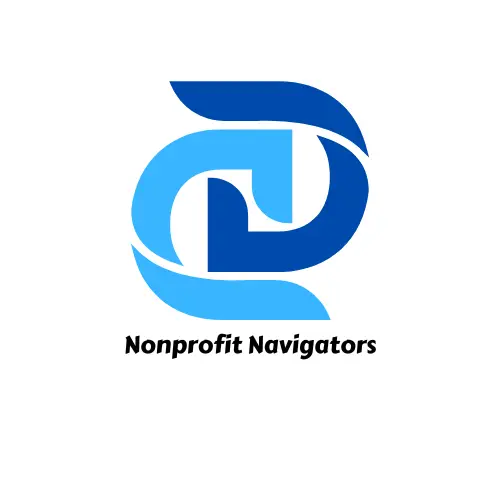Delegating tasks as a nonprofit leader can seem daunting, but the benefits far outweigh the challenges.
In the bustling world of nonprofit organizations, the ability to delegate tasks effectively is a crucial skill that can make or break a leader’s success.
Delegation is not just about offloading work; it’s about empowering your team, maximizing productivity, and ultimately enhancing the impact of your mission.
If you’re a nonprofit leader feeling overwhelmed by your workload, you’re not alone. Many leaders struggle with delegation, often believing they need to do it all themselves.
However, learning how to delegate tasks can transform your organization and free you up to focus on what truly matters: your mission.
Why Delegation Matters in Nonprofits
Delegation is essential for several reasons.
First, it fosters a sense of ownership among team members, making them feel more invested in their roles.
Second, it allows leaders to concentrate on strategic decisions and long-term goals instead of getting bogged down in day-to-day operations.
Lastly, effective delegation can lead to higher productivity and creativity within your organization. When tasks are shared, ideas flow more freely, and your team can collaborate in ways you might not have imagined.
The Common Pitfalls of Delegation
Before diving into effective strategies, let’s discuss some common pitfalls that nonprofit leaders face when it comes to delegation:
- Fear of Losing Control: Many leaders hesitate to delegate because they fear losing control over their projects. This is a natural concern, but it’s essential to recognize that trust in your team is vital for growth.
- Perfectionism: If you have a particular way of doing things, it can be challenging to let someone else handle the task. However, perfectionism can hinder progress. Remember, done is better than perfect.
- Inadequate Training: Sometimes, leaders delegate without providing sufficient context or training. This can lead to confusion and frustration on both ends.
Understanding these pitfalls will help you avoid them as you implement delegation strategies.
Strategies for Effective Delegation
Now, let’s explore practical strategies that can help you delegate tasks more effectively within your nonprofit.
1. Identify Tasks to Delegate
The first step in effective delegation is to identify which tasks you can hand off. Not every task needs your personal touch. Consider the following categories when deciding what to delegate:
- Routine Tasks: Administrative duties, data entry, and routine communications can often be handled by others. For example, if you’re managing your organization’s social media accounts, consider assigning this task to a marketing intern or volunteer who has a flair for communication.
- Specialized Tasks: If you have team members with specific skills—like graphic design or financial management—leverage their expertise. For instance, if you’re planning an event, let your event coordinator handle the logistics instead of micromanaging every detail.
- Time-Consuming Tasks: Identify tasks that consume a lot of your time but do not require your direct involvement. For instance, instead of personally updating your donor database, delegate this to a team member or volunteer.
2. Communicate Clearly
Once you’ve identified the tasks to delegate, clear communication is vital. Here’s how to do it effectively:
- Set Clear Expectations: When assigning a task, be specific about what needs to be done. For instance, if you ask a team member to prepare a report, provide a template or outline to guide them.
- Provide Context: Help your team understand how their work fits into the bigger picture. Share why this task is important and how it contributes to your organization’s mission. This not only motivates them but also helps them approach the task with a sense of purpose.
- Encourage Questions: Create an environment where team members feel comfortable asking questions. This can prevent misunderstandings and ensure everyone is on the same page.
3. Empower Your Team
Empowerment is key to successful delegation. Trust your team to take ownership of their tasks:
- Provide Autonomy: Give team members the freedom to make decisions about how they complete their tasks. This not only boosts their confidence but also encourages creativity. For example, if you’ve delegated the planning of a fundraising event, allow the planner to choose the venue and theme based on their vision.
- Offer Support, Not Micromanagement: While it’s essential to check in, avoid hovering over your team. Let them know you’re available for guidance, but give them the space to work independently.
4. Use Technology to Your Advantage
In today’s digital age, leveraging technology can simplify the delegation process. Here are some tools that can help:
- Project Management Tools: Platforms like Trello or Asana allow you to assign tasks, set deadlines, and track progress in real-time. This transparency keeps everyone accountable and allows for smoother collaboration.
- Communication Tools: Utilize tools like Slack or Microsoft Teams for quick and effective communication. These platforms can streamline conversations and ensure important information doesn’t get lost in email threads.
- Document Sharing: Use Google Drive or Dropbox for easy access to shared documents. This ensures everyone has the resources they need to succeed.
5. Train Your Team
Investing in training can significantly improve your team’s ability to handle delegated tasks:
- Provide Training Resources: Offer access to training materials, whether it’s workshops, online courses, or mentorship opportunities. For example, if you’re delegating grant writing responsibilities, consider organizing a training session to build your team’s skills in this area.
- Encourage Continuous Learning: Foster a culture of learning within your organization. Encourage team members to pursue professional development opportunities that align with their roles.
6. Recognize and Celebrate Achievements
Acknowledgment can go a long way in motivating your team:
- Celebrate Milestones: Whether it’s a successful event, a grant application submitted, or any task completed, make it a point to celebrate achievements. For instance, after a successful fundraising campaign, host a small team celebration to recognize everyone’s contributions.
- Provide Feedback: Constructive feedback is essential for growth. Regularly review the work of your team and provide both positive reinforcement and areas for improvement. This helps team members learn and grow from their experiences.
Practical Example:
To illustrate the power of effective delegation, let me share a story about a small nonprofit, “Hope for Tomorrow,” that faced a significant challenge.
Hope for Tomorrow was dedicated to providing educational resources to underprivileged children in their community.
However, as their outreach grew, the executive director, Maria, found herself overwhelmed. She was juggling fundraising, managing volunteers, and coordinating programs—all while trying to maintain the organization’s mission.
Recognizing she couldn’t do it all, Maria decided to implement a delegation strategy. She began by identifying tasks that could be delegated, such as social media management and volunteer coordination. Maria held a team meeting to communicate her plan clearly, explaining how each team member’s role was crucial to the organization’s success.
One volunteer, Lisa, expressed an interest in social media. Maria provided Lisa with access to the organization’s accounts and shared her vision for the online presence. With clear expectations and the freedom to experiment, Lisa revamped their social media strategy, leading to increased engagement and donations.
By empowering her team and effectively delegating tasks, Maria not only alleviated her workload but also ignited a new level of enthusiasm among her staff.
The result? Hope for Tomorrow expanded its reach and provided educational resources to even more children in need.
Take the Leap
Delegating tasks as a nonprofit leader can seem daunting, but the benefits far outweigh the challenges.
Remember, effective delegation is not about offloading work—it’s about building a stronger team and focusing on your mission. As you embrace these strategies, you’ll find that you can accomplish more than you ever thought possible.
For more expert tips and resources on nonprofit leadership, subscribe to the Nonprofit Navigators Newsletter.
Gain access to job opportunities, grant opportunities, exclusive webinars, and events designed to help you thrive in your nonprofit journey. Don’t miss out on the chance to elevate your organization—subscribe today!
Additional Resources:
- The Small Business’s Guide to Winning Grants
- Request for Proposal Success: How to Write Proposals That Win
- The Ultimate Guide to Federal Grant Applications: Techniques for Success
- Digital Marketing for Nonprofits: A Comprehensive Guide to Boosting Your Impact Online
- Mastering Online Fundraising: A Nonprofit’s Guide to Digital Success




